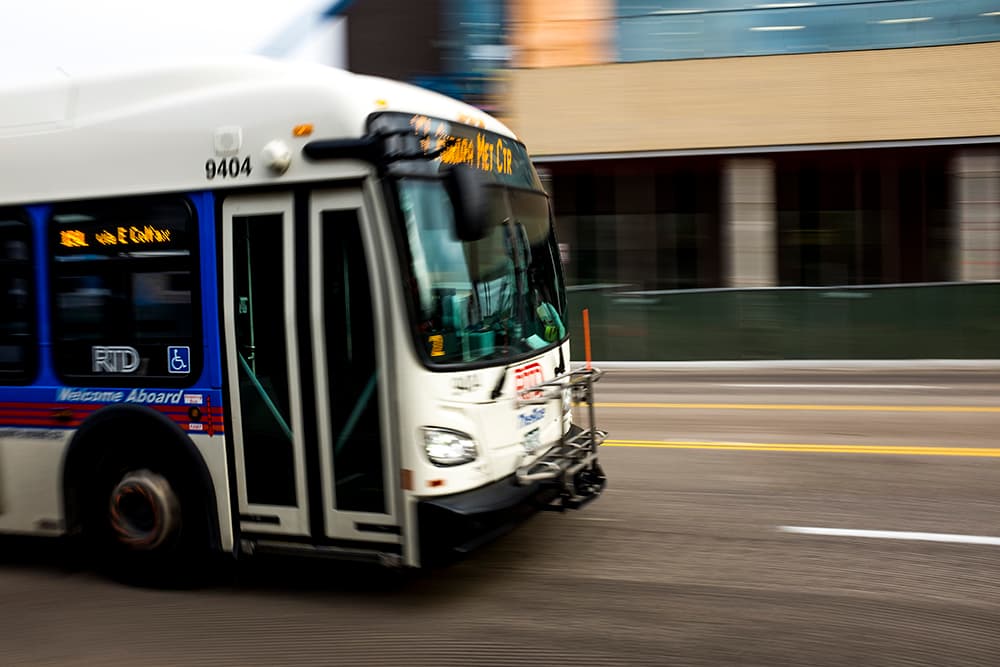Between high ozone levels, wildfires, car pollution and industrial smog, summer in Denver kinda stinks! Literally. On top of that, taking transit around the Front Range isn't cheap. A three-hour local pass is $3, and a day pass is $6. The costs for regional transit and airport trips are even higher.
All that has readers wondering about a policy the governor signed this year designed to boost transit use to reduce ground-level ozone.
"Is it true RTD will be free all of August this summer?" asked Denverite reader Lynn. "If so will that include all bus and lightrail schedules? Our air needs this! Us too!"
Though summer is bearing down upon us and the skies are already smoggy, RTD still doesn't have a firm answer to Lynn's question -- even though the bill passed and free transit is likely.
The District is going through a process with the Colorado Energy Office.
Here's the problem identified in the bill.
The bill opens with a grisly description of the horrors of ozone: its effect on people with respiratory illnesses, the elderly and young children.
"The negative effects of ozone exposure include pain when breathing deeply, coughing, sore throat, and inflamed or damaged airways," the bill states. "Ozone exposure can also exacerbate existing respiratory conditions including asthma, emphysema, and chronic bronchitis and may be a potential cause of asthma."
June 1 through August 31, the state's ozone season, creates serious health risks for Coloradans and forces many people to retreat inside. Reducing traffic is a great way to reduce ozone, protect public health and clean up the air.
The solution?
"Offering free transit has increased transit use in other communities and can help rebuild ridership following the COVID-19 pandemic," the bill states. "Creating a grant program to provide free public transit during ozone season will promote public health and serve the interests of all Coloradans."
Colorado passed a similar policy in the 1970s, and it proved not to be that effective in reducing driving, though it did increase RTD use, reported CPR's Nathaniel Minor.
Here's how the new policy would work.
Regional public transit entities and other companies providing public transit are eligible to receive grant money to fund free ozone-season transportation, distributed by the Colorado Energy Office. RTD would be eligible to receive funds between June 1 and August 31 for a minimum of 30 days.
Most transit districts are eligible for $3 million grants, but RTD is eligible for up to $11 million.
The applications required agencies to explain how the free program would work, any matching funds the agency would bring, and a timeline between June 1 and August 31 for the free service to be provided for at least 30 days. RTD, specifically, can use the grant money to pay for up to 80% of free services. Agencies will be required to report back on how the money was used.
While the money for the project could cover free service between June 1 and August 31, the bill wasn't signed until May 26. The application process through the Colorado Energy Office is still open. Applications must be received by July 7 and grants will be awarded by July 14.
"RTD is planning on a zero-fare August," said RTD spokesperson Marta Sipeki, "pending approval from the Colorado Energy Office."
Do you have a question about Denver? We'll try to find you an answer.











